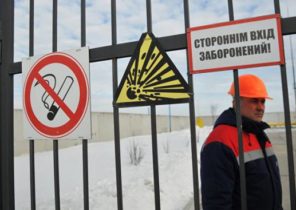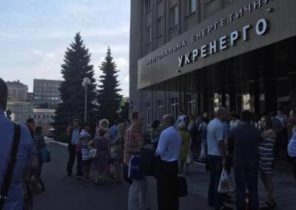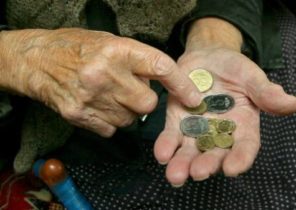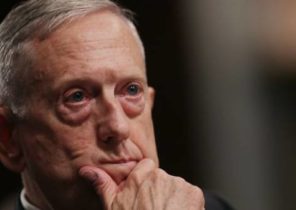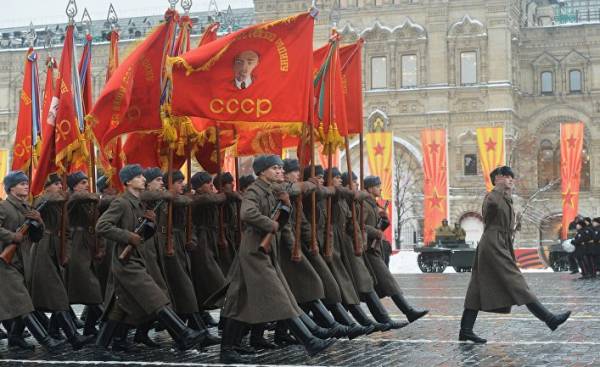
Russian President Vladimir Putin wants you to rethink what you know about Russia and the Soviet Union, and adopted the “objective” truth about their history.
Thursday, 4 may, the Kremlin published a strategy, in which he recommended that the Russian ministries and public organizations to develop plans for the dissemination of “objective historical and current information about the Russian Federation, including its role in the victory over Nazism.”
In the implementation of these plans will involve several ministries, and they will have a global reach. Many problems anyway connected with the Second world war and fight against the fact that the Ministry of foreign Affairs calls “attempts of revision of history” and “glorification of Nazism”. These measures aim to instill in people the idea that the Kremlin is trying to emphasize at every opportunity: Moscow fought Nazi Germany and won.
For example, the Ministry of communications and mass communications of the Russian Federation was instructed to ensure the distribution to “major media market environment,” the Russian documentary, feature films and TV series that reflect objective information about Russia, including its role in the victory over Nazism, and the Ministry of culture should convince the foreign organizations of the need to honor the heroism of Soviet soldiers.
The Ministry of foreign Affairs should promote this strategy overseas, helping different groups to hold events and implement community projects, which tells of the exploits of the Soviet people during the Second world war.
Even members of the Russian Parliament agreed to contribute and try to convince their international colleagues of the need to support this initiative to showcase “role of Russia in the victory over Nazism,” while the members of the Russian scientific institutions promised to support projects aimed at “de-politicization of historical science”.
These and other instructions and recommendations were detailed in the minutes of the meeting of Putin the Russian organizing Committee “Victory”, which includes Ministers, security officials and other government officials. In this Protocol quite a few specific details of the proposed activities, but the timing of the tasks necessary for 2017 and 2018, and it means that the Kremlin is waiting to see concrete results relatively soon.
Organizing Committee “Victory” is a place where the Kremlin accords with the most influential officials of the country what can be called the party line about the turbulent and often controversial history of Russia.
The role of Russia in the Second world war is a topic, which the Russian government tries at every opportunity to refresh your memory even now, 70 years after the end of the war. Since Soviet times, the anniversary of the capture of Berlin by Soviet troops celebrated annually pompous military parades in Moscow and other cities of the country.
The Kremlin’s interpretation of events of that era causes a lot of debate, especially considering that the Soviet Union quite late entered the war, before dividing with Nazi Germany in Eastern Europe within the framework of the Pact.
Putin himself is also surprised many during his address to Parliament last year, saying that the Soviet Union was always opposed to Nazism and that the inaction of the West has led to its spread. He even compared this version of the events of the past with the spread of Islamic extremism today. A few months later, in October, he invited the President of Kazakhstan Nursultan Nazarbayev at the premiere of the film about the Second world war “28 Panfilov”, filmed on the basis of the popular Soviet myth of the commander of the red army and its soldiers from the 28th infantry division, who managed to contain the offensive against vastly superior in number German force, and to destroy 18 enemy tanks. They all died in the course of the operation. Although after the war it was proven that in fact this story was a fabrication or at least exaggeration, the Ministry of culture rejected the assumption that the film is a fiction.
Soviet symbols designed to convey the difficulties which the Red army experienced in key battles such as the battle of Stalingrad, remain a powerful influence in Russia, and Victory Day, Putin acquired immense popularity, becoming the second in the list of the most important national holiday after the New year.
Attempts to glorify the exploits of the red army causes a lot of conflicting feelings in Russia’s neighbors, such as Poland, Lithuania, Latvia and Estonia, which have lost their sovereignty in accordance with the Treaty on non-aggression signed by the Soviet Union and the Nazis. According to their official point of view, the military presence of Soviet troops on their territories is not seen as a liberation mission, and how the invasion and occupation. The brutality of the Soviet military during the war — as in the case with the mass execution of Polish officers at Katyn — was another reason for the refusal to accept the official version of Moscow on the role of the USSR in the war against Nazism.
In October, Poland and the Ukrainian Parliament and signed a joint statement which said that the omission of Russia in the early phase of the war was the main reason that the Nazi regime was able to substantially expand the boundaries of this conflict.

